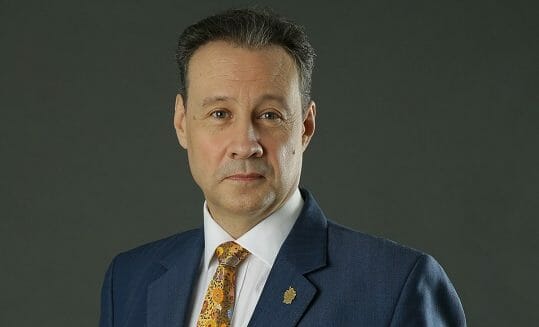It has long been recognised that motivation is essential in any workplace because it is motivation which inspires and energises employees to do their best work. There is abundant scientific evidence that a highly motivated workforce is more engaged, happier at work, and most important of all, is much more productive. High motivation also supports creativity and collaboration, so people are able work much more effectively to solve problems and generate the new ideas that will ensure continued profitability into the future. People are the most important asset of any organisation and motivation also promotes loyalty, which means that employees stay longer with the company, they are willing to go the extra mile, and they act as public cheerleaders for the business by promoting what makes their organisation such a great place to work. Leaders who do not understand how to motivate their colleagues will obviously not benefit from all the positive aspects of motivation and at best they will be surrounded by workers who watch the clock and do enough to get by. At worst, bad leaders can demotivate their teams causing reductions work productivity and quality, spreading dissatisfaction and disharmony, and ultimately destroying profits while increasing costs through low engagement, poor output, and rocketing staff turnover. This why it is so important for leaders to ensure that they know how to positively motivate their employees to achieve optimal performance.
The most motivational leaders lead by example. The ways in which leaders behave, speak, and work, sets the tone for the team. If leaders want colleagues to be punctual, polite, performing, positive, professional, collaborative and committed then those are the things leaders should be doing every day you are at work. Good leaders are on time or early, they work hard, maintain a cheerful outlook and treat everybody with respect. Interestingly, the research evidence suggests that even subtle signals like what people wear to work has a big impact on motivation, with most people being more productive when wearing business attire, so truly motivational leaders dress well and avoid casual or dress-down Fridays.
Everybody wants to have a sense of purpose in their lives and that means giving every employee an understanding of the bigger picture and how they contribute to the company achieving its mission. Every organisation exists to achieve something, but it can often be easy to lose sight of what that something is, so stating the purpose of the organisation clearly motivates teams to achieve those outcomes. Alongside an understanding of the organisational mission, individuals will also be motivated by being given clearly defined goals and expectations. Showing people how their job relates to achieving the organisational mission will inspire them to do their best and give them a sense of pride in their achievements.
Allowing employees sufficient autonomy and control over their work to do things in the ways that they find best can increase their sense of personal ownership and this will boost their motivation to perform better. Leaders should show an interest without trying to micromanage, and when necessary provide clear, honest feedback and guidance so that people know they can always seek constructive help. An open and positive approach also means that staff are more likely to be honest about difficulties in the early stages and will be motivated to raise and solve problems, rather than concealing what goes wrong in order to avoid any personal responsibility.
Giving rewards and recognition for good work is a very important motivation for high performance. Most employees value recognition that comes in the form of cash bonuses, award ceremonies or employee-of-the-month schemes, but the best leaders know that there is much more to motivating individuals and teams than these big and occasional rewards. The key to motivating sustained high performance is to give very regular, public and personal recognition to people, and to do so in a timely way. This can take many forms, from calling everybody in the office together to announce that a colleague or team has just made a significant achievement, through to giving immediate positive feedback for a good idea put forward in a team meeting. Everybody wants to know that what they do is appreciated and they want their peers to know that they are appreciated, so good leaders regularly praise the people and teams who are performing well and they are quick to give credit where it is due. These small acts of recognition can make a big difference because they directly motivate the individuals concerned, while also inspiring other members of the team to perform better in future.
Providing opportunities for people to learn, develop and progress can also be a powerful motivator for high performance. Most people enjoy acquiring new skills and exploiting their existing talents, so giving them the chance to try new things and get involved in projects outside their usual work can have a very positive impact on performance. Opportunities for promotion or other forms of progression can also be good motivators, so effective leadership means developing a clear career structure and also making colleagues aware of succession plans.
Motivated teams deliver the high performance that leads to profitability. Motivating the people in those teams is not difficult, it just needs individuals who are motivated to be good leaders.
By Prof Hew Gill, Associate Provost, Sunway University









